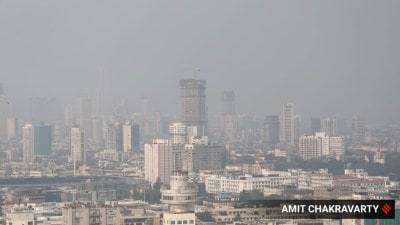Retrograde and worse
The Supreme Court order regarding the Central Vigilance Commission in the midst of the hearing of the hawala case was historic. The bench...

The Supreme Court order regarding the Central Vigilance Commission in the midst of the hearing of the hawala case was historic. The bench headed by then Chief Justice J.S. Verma directed that the CVC would have statutory status, and that the government would take steps to ensure that the CBI functioned effectively and was viewed as a non-partisan agency.
It laid down that the CBI director would have a minimum tenure of two years regardless of the date of his superannuation. He would also have freedom to allocate work within the agency and for constituting teams of investigation.
The Supreme Court also quashed the pernicious and illegal Single Directive which required the CBI to get sanction from the concerned department before initiating action against officials at the decision-making level. But the order of the court on day-to-day control over the CBI’s work and the qualifications laid down for appointment of the CVC were open to question.
Unfortunately the CVC Ordinance of 1998, issued with the claimof giving effect to the Supreme Court order of December 1997, has made things worse. It is retrograde and will undo what good there was in the court order.
The Supreme Court had laid down that the Chief Vigilance Commissioner would be selected from a panel of “outstanding civil servants and others”. As if to prevent the selection of any other suitable person, say, a serving or retired Supreme Court or High Court judge, the ordinance limits the choice of CVC and the three Vigilance Commissioners to a civil servant, including a police officer. It says that the CVC and the other Commissioners shall be appointed from “amongst persons who are or have been in an All-India Service or in any service of the Union or in a civil post under the Union.”
The ordinance takes away government’s control over and superintendence of the CBI and entrusts it to a multi-body CVC. Henceforth, instead of a minister, accountable to Parliament and the people, civil servants will exercise control over the CBI in itsinvestigations under the Prevention of Corruption Act of 1988.
The CBI will have three masters to answer to: the three-member CVC with the Secretary of the Department of Personnel as ex-officio member; the courts of law; and, of course, the political executive in some form or the other. The proposed Lok Pal, for which a Bill has already been introduced, will also have some sort of jurisdiction.
The ordinance goes further. A body of civil servants will boss over the Appointments Co-mmittee of the Cabinet, consisting of the Prime Minister and Home Minister. According to the ordinance, the CBI director “shall not be transferred except with the previous consent of the Committee” comprising the CVC, the Home Secretary and the Secretary, Department of Personnel.
And to whom will the CVC be accountable? Neither the courts nor Parliament. It is hard to fathom how Parliament can enforce the CBI’s accountability to itself when the CBI’s investigations under the Prevention of Corruption Act will be supervised bythe CVC. Is this not a betrayal of ministerial responsibility and a surrender to the bureaucracy?
But what makes the ordinance totally untenable is the bringing back of the Single Directive. This requires the CBI to get the CVC’s approval for investigating, under the Prevention of Corruption Act, a Joint Secretary-level officer or above and their equivalents in central government undertakings.
Worse, the ordinance provides for insertion of this Single Directive in the Delhi Police Establishment Act of 1946, making it statutory. Earlier it was a mere administrative order of the Centre. The Supreme Court in its order of December 18, 1997, had dealt with and quashed every argument for retaining this Single Directive advanced by the Attorney General and the Independent Rev-iew Committee (IRC) constituted by the Gujral government. It had said, “The law does not classify offenders differently for treatment, including investigation of officers and prosecution of officers according to their status in life. Everyperson accused of committing the same offence is to be dealt with in the same manner in accordance with law, which is equal in its application to everyone”.
The Attorney General had relied on the court’s decision in the Saldanha case, which held that superintendence of the state government included its power to direct further investigation under the Criminal Penal Code. The committee of bureaucrats, known as the IRC, had pressed for retention of the Directive on the basis of the court’s decision in the K. Veeraswamy case.
The Supreme Court held that the decision in the Saldanha case had no application to support the Single Directive in exercise of the power of superintendence, since “the effect of the Single Directive might thwart investigation of a cognisable offence” and may not “promote the cause of justice by directing further investigation leading to prosecution”.
In the K. Veeraswamy case the court had held by majority that the Prevention of Corruption Act applied even to judges of the HighCourts and the Supreme Court. After taking this view it was held by the majority that, to protect the independence of the judiciary, it was essential that no criminal case was registered against a judge of the High Court or of the Supreme Court without consulting the Chief Justice of India and obtaining his assent.
The Supreme Court rejected the parallel attempted to be drawn from this judgment with the Single Directive. It held that judicial independence had no application for officers governed by the Single Directive: “We have no doubt that the decision in K. Veeraswamy case has no application to the wide proposition advanced by the learned Attorney General to support the Single Directive. For the same reason, reliance on that decision by the IRC to uphold the Single Directive is misplaced.”
It was on this and several other grounds that, after careful consideration of all legal and other related matters, the Supreme Court had held that the Single Directive could not be upheld. Yet the CVC ordinance,disregarding the court’s ruling, has provided for its insertion in the Delhi Police Establish-ment Act. This aspect is not only legally questionable but also retrograde. The ordinance does worse by giving this power to the CVC, which would consist of serving or retired bureaucrats, and making it statutory.
The writer is a former CBI officer and now Member, National Executive, Samata Party



- 01
- 02
- 03
- 04
- 05




























